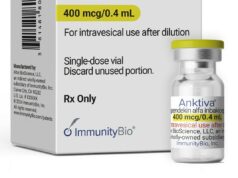Picking a health plan may be one of the most important decisions employees will make after starting a new job. Faced with a menu of options, most people don’t fully understand the mechanisms of copays, co-insurance, deductibles and out-of-pocket maximums.
How do most people approach this? Many ask their manager for advice on which plan to pick, said Michael Yang, a managing partner at OMERS Ventures.
“You’ll spend more time deciding what car you will buy. But when it comes to annual open enrollment, deciding what plan to get into, people just put up the white flag,” Yang said.
Clearly, this isn’t the ideal way to choose a health plan. But what would be? Yang and Shawn Wagoner, chief revenue officer and co-founder of insurance startup Bind Benefits, debated whether employees can be informed to make the best coverage decisions at MedCity INVEST Digital Health.
Bind primarily works with self-insured companies, though it plans to offer fully insured plans in some states next year, starting with Florida. The startup cuts out annual deductibles and coinsurance, which it says allows it to give upfront pricing information for most procedures. Employees add on coverage during the year for planned procedures, such as knee surgery.
“Most people are forced to make a decision about coverage when they don’t really know what they need,” Wagoner said. “We needed to start over and design an insurance product they could understand. They need to feel empowered to make decisions.”
His approach — and part of the idea behind Bind — is that with the right information, presented without industry jargon, people can make their own decisions.
Yang disagrees. He sees more value in having a trusted advocate to help employees make benefits decisions. While working at Comcast Ventures, he previously led an investment in Accolade, a digital health startup that uses this model.
“It has created this opportunity for a new generation of tech-enabled services which are these new advocates, assistants, coaches, guides, mediators and counselors, that come from an independent third-party perspective,” he said. “They are helping these folks through their healthcare journey.”
What about after people pick a plan? Then comes the process of finding a primary care physician, choosing a specialist and in some cases, shopping around for the cost of a procedure.
For Bind, employees can search for that information in its app.
“I believe consumers need information. Individuals themselves that are able to make decisions that optimize what they’re looking for,” Wagoner said. “When I eliminate deductibles and coinsurance for my plan, those decisions become like other decisions.”
He added that as a result, Bind has seen emergency department use that is 30% below benchmark levels.
Yang, on the other hand, said healthcare still has to be human-centric. One of the top inquiries for Accolade’s members is help in picking a provider.
It hires nurse representatives that pull in patient information and physician quality data to help them pick a primary care physician or specialist.
“Most of healthcare is about behavioral change: a bunch of science and nudges and pushes and carrots and sticks,” he said. “It is proven to be done extremely well by humans.”
As for the thesis of consumer empowerment by giving patients access to cost and quality data, Yang isn’t buying it.
“People are still stymied by that process,” he said. “Are we truly literate and motivated to make these decisions on our own? I think some people are. I think the vast majority of Americans are not.”
Photo credit: JamesBrey, Getty Images








